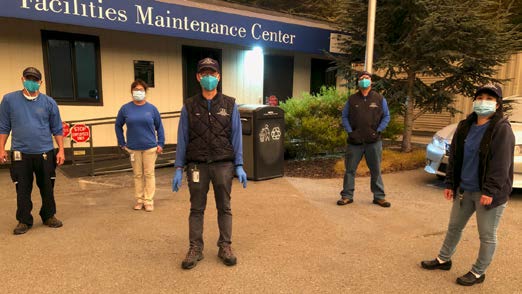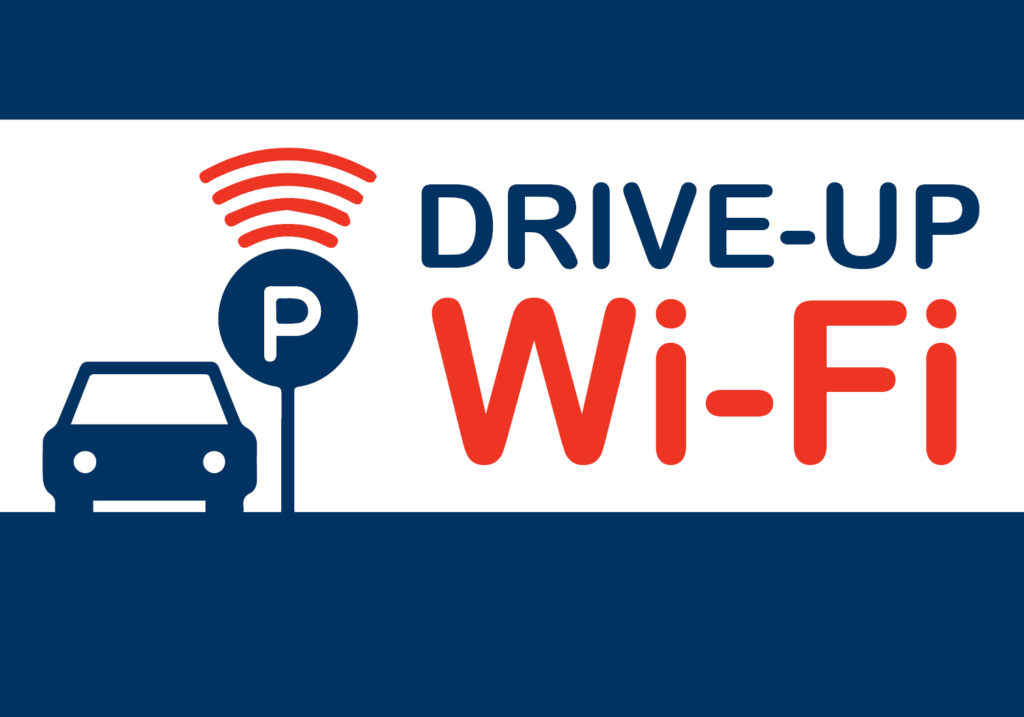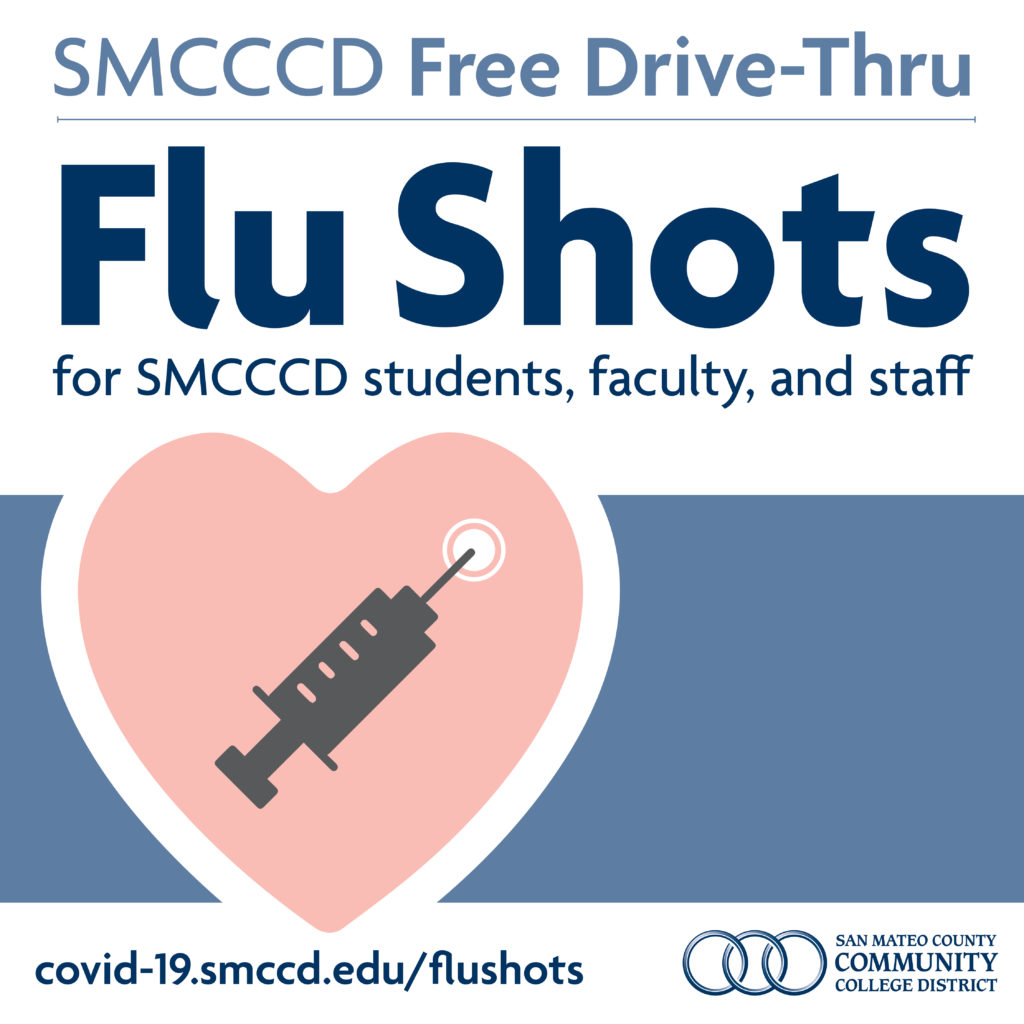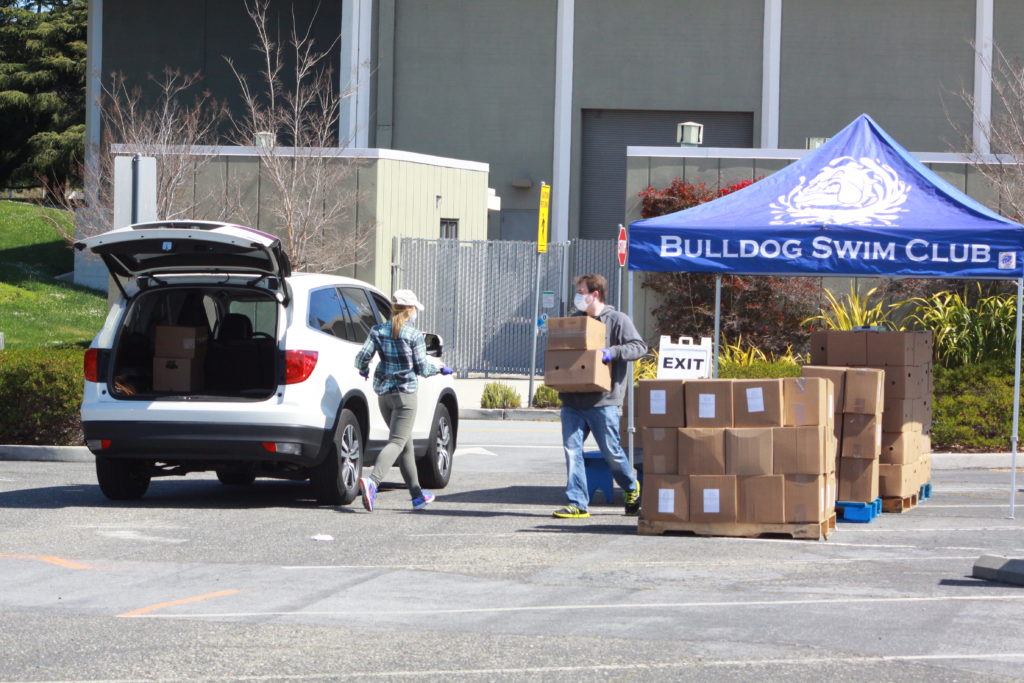Throughout the COVID-19 pandemic, certain categories of professionals have been designated “essential workers” for their role in maintaining the health and safety of the community. While most of our classified staff, faculty, and administrators work from home, these employees still come to work to keep campuses, buildings and technology running smoothly to support the District’s educational mission. With three college campuses and the District Office to support, and with the complexities of intensive sanitization and safety procedures, these teams are more essential than ever.
Facilities
The District Facilities team continues to work full time during the pandemic. Every classroom, lab, hallway, staircase, door handle and elevator associated with a face-to-face class must be sanitized every day in order to keep people safe. Approximately 85 groundskeepers, engineers and custodians are onsite every day. Three facilities managers and three custodial supervisors, and a project coordinator oversee these operations.
Prior to the pandemic, the Facilities custodians had already been certified hospital-grade cleaning and disinfecting techniques by the Cleaning Management Institute. They have kept up to speed on Coronavirus sanitization techniques by participating in workshops through the Global Biorisk Advisory Council (GBAC). Teams also now use a specialized Clorox 360 electrostatic disinfecting machine.
The team also continues to maintain District physical assets, monitoring central boiler and chiller plants, monitoring critical life safety and building systems, and performing regular grounds keeping.
Information Technology Services
With most employees working remotely, and nearly all classes being taught online, technology is more important than ever. A team of 30 information technology professionals is on campus every day to support the District’s networks infrastructure, learning management systems, databases, business and records systems, communications systems, websites, and equipment. The team provides remote technical support for employees working from home, loans laptops and other equipment to employees and students, and has built the infrastructure to offer free Wi-Fi for students in the college parking lots.
Public Safety
The pandemic and its restrictions make safety, security, and controlling campus access of paramount importance. Access to the campuses and their buildings must be protected in order to offer food and technology distributions, face-to-face classes, and other high-priority campus operations. A team of 37 Public Safety employees makes this possible, working round-the-clock onsite at the three campuses.
Public Safety added six temporary employees to assist with staffing the campus access points, where people are screened for entry to the campuses. These employees work outside in summer heat, winter cold, rain and smoke, and have become experts at safely contacting and communicating with hundreds of people at our access points.

Public Safety has assigned several employees to assist with the facilitation of every food distribution event at Skyline and CSM since they began. Officers also assist with other campus operations like technology distributions and flu shot clinics.
The Public Safety emergency manager and emergency management coordinator have taken a lead role in the startup and ongoing work of the District’s Emergency Operations Center.




